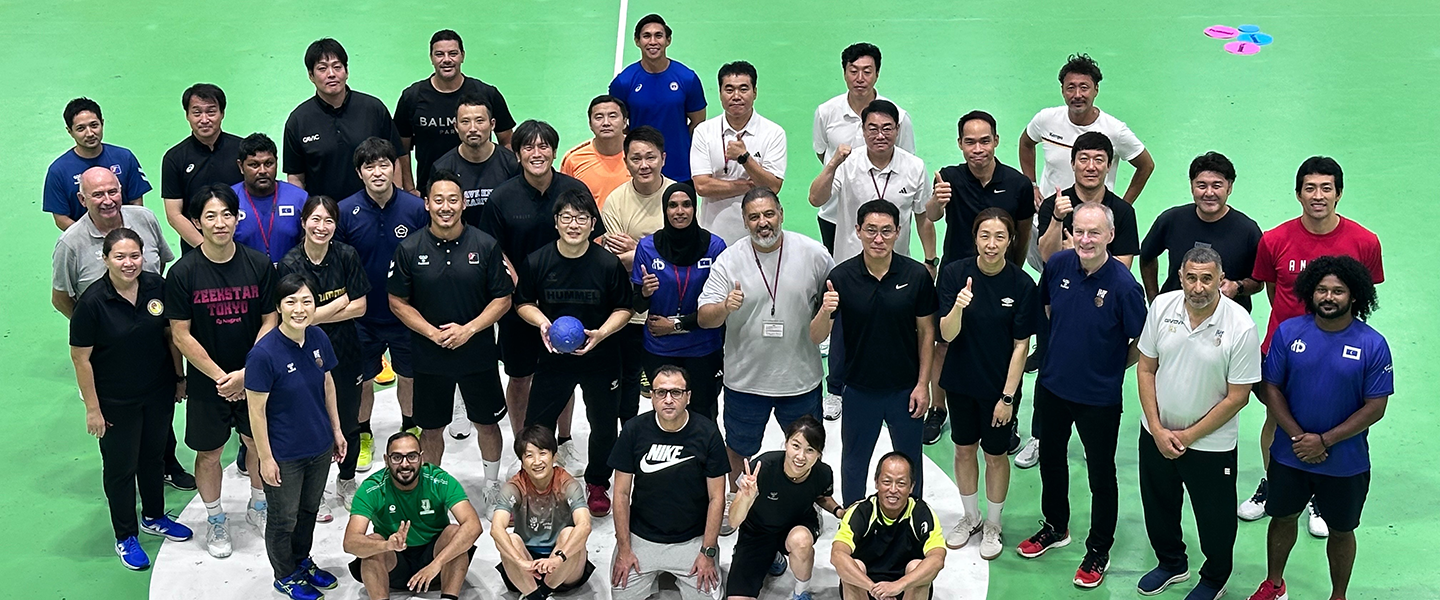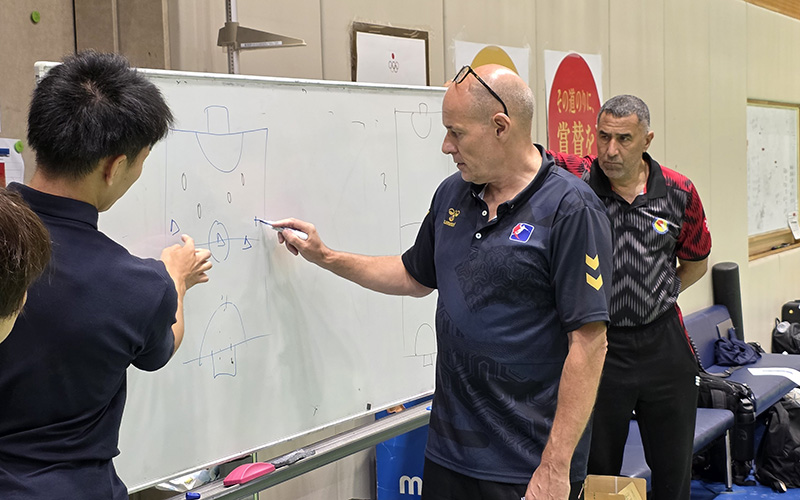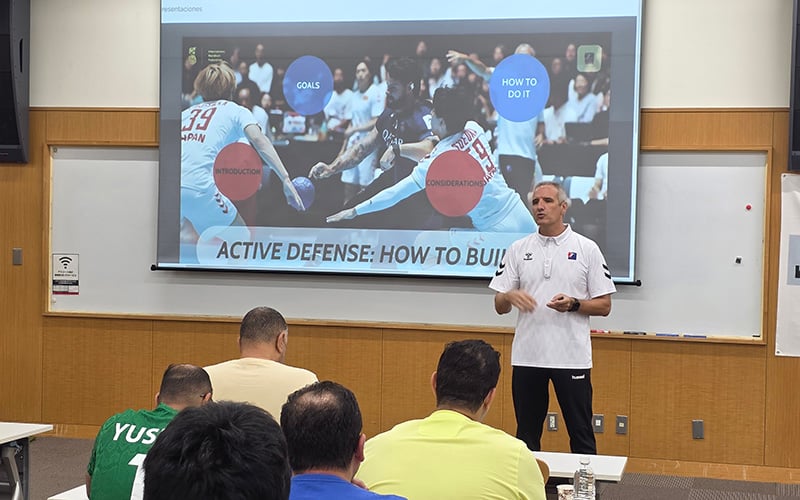Tokyo hosts landmark IHF B-License coaching course
16 Sep. 2025

The recent successful completion of the second IHF B-License coaching course in Tokyo, Japan marks a significant milestone in the ongoing global rollout of the International Handball Federation’s comprehensive Coaches’ Licence Structure, now being implemented in close partnership with the Asian Handball Federation (AHF). This development follows the earlier phase in Africa, where more than 2,200 coaches have already obtained IHF licenses during the transitional period that began after the Covid-19 pandemic.
Since 2022, the IHF Coaches’ Licence Structure — designed to elevate coaching standards and professionalize handball training worldwide — has progressively spread beyond Europe. Africa served as the start point, with multiple licence courses across all levels conducted in 2023 and 2024, adapting framework conditions during the transition phase to build capacity within target groups. Following this effective model, Asia has entered its own transition period in 2025, with the first B-License course organised in Kuwait earlier in the year.

The second B-License course held in Asia this year, this time in Tokyo, spanning between 25 August and 1 September, embodied this collaborative vision for Asian handball. Led by the IHF CCM Chairman, Dietrich Späte, and Paul Landure, alongside IHF Lecturer Nabeel Taha, the course brought together 33 coaches from eight different member associations, demonstrating the continent’s broad engagement. The smooth organisation of the course was credited to Eiko Yamada, an IHF lecturer and analyst who also serves as Japan’s High Performance Director, ensuring cutting-edge presentation techniques and modern pedagogical tools enriched the learning experience.
Practical training took place in the Japanese Handball Association sports hall with active participation from University of Tokyo’s men’s and women’s teams, providing invaluable hands-on opportunities. One of the highlights was the involvement of Japan’s national team coaches, Toni Gerona (Japan men's senior national team coach) and Morten Soubak (Japan women's senior national team coach), who shared detailed insights on tactical development and the future directions of handball in Asia, complementing the theoretical sessions with practical demonstrations.
Throughout the intensive week, participants engaged in group work, shared tactical concepts, and presented their own team strategies, fostering a dynamic and interactive learning environment. The expertise and enthusiasm brought by the attendees were reflected in the successful completion of the course by 28 participants, who were awarded the IHF B-License — certifying their qualification to coach junior and senior players at an advanced level.
Among the standout performers, Mayuko Ishitate (Japan), Kim Jin Soon (Republic of Korea), and Sherif Moemen (Egypt) were especially recognised by the course leaders for their exceptional progress and contributions, symbolising the truly international nature of handball’s growth in Asia. Both Ishitate and Kim Jin Soon, former players in their countries' women national teams, underline the critical importance of fostering the development and growth of women’s coaches in handball.

The forthcoming launch of the continent’s first A-License course, planned for early 2026, sets a promising agenda for continued advances in coaching education and elite development.
The implementation of the IHF Coaches’ Licence Structure in Asia, exemplified by these rigorous training courses, not only raises the technical and tactical proficiency of coaches but also strengthens the overall coaching infrastructure, contributing directly to the sport’s expansion at grassroots and competitive levels. It reflects the IHF’s global commitment to nurturing a new generation of skilled coaches who will guide the development of handball in diverse regions, promoting international standards and best practices.

